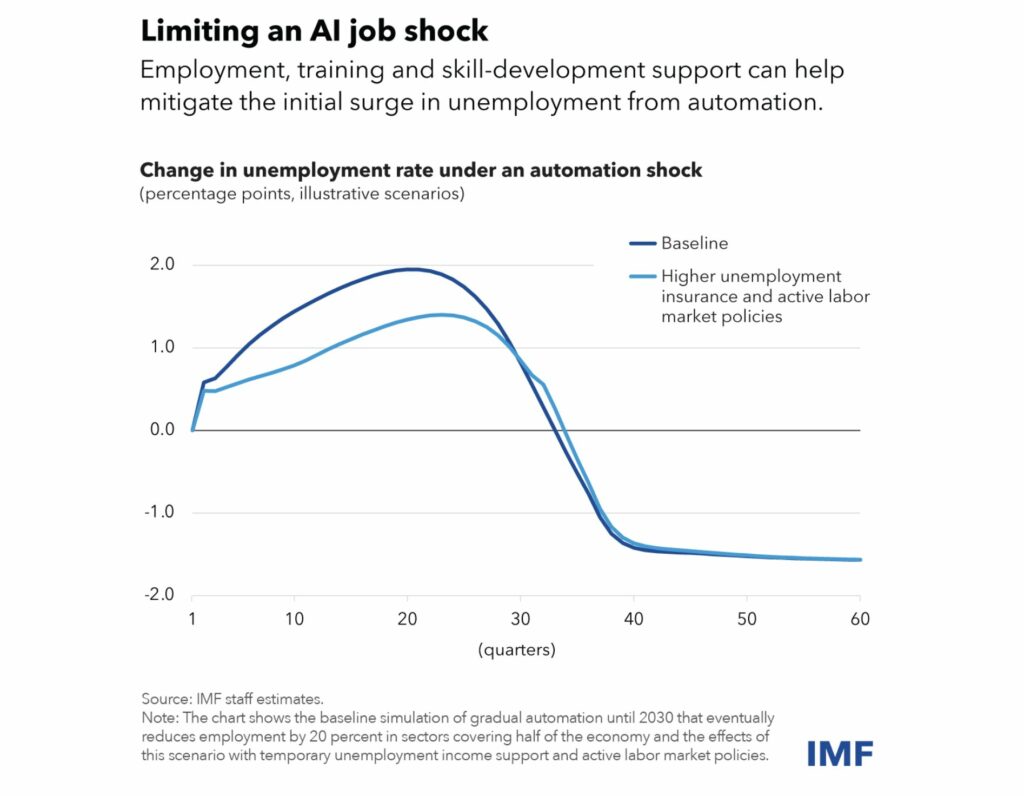AI training courses could be the key to navigating looming labour disruptions caused by generative AI, according to a new report by the International Monetary Fund (IMF).
In the report, published on Monday, the United Nations financial agency said it had “profound concerns” about the impact of GenAI models – especially ones able to create realistic pictures and video – on societies around the world. It’s these very capabilities, however, that prompted a rebound in global tech stocks shortly after the pandemic.
It also stressed the importance of candidates and employees taking AI training courses and reskilling programmes, warning that (unlike past disruptive technologies) AI could lead to job losses in higher-skilled occupations.
The IMF report forecasts that 40% of all jobs globally will be affected by AI in some capacity – either for better or worse. While some jobs will be made and some will be lost, it also highlights how the productivity benefits touted could ultimately reduce the importance – and therefore wages – in some jobs, widening the wage gap.
It could also widen an already large wage gap between the countries with the biggest exposure to AI and the smallest.
Education and training policies must evolve to address the new realities of a rapidly changing job market, continues the report. With Goldman Sachs reporting that 97 million new jobs will be created by the advent of AI, sector-based training, apprenticeships, and data & AI training courses will be the biggest factor in facilitating workers’ transitions to new tasks and sectors.

Source: IMF
“We want people to be able to benefit more broadly from the potential that this technology holds and we want to ensure that there are opportunities created for people,” said Era Dabla-Norris, deputy director at the IMF’s fiscal affairs department and co-author of the report, to the FT.
She added that the “transition could be painful for workers” facing the prospect of higher and longer unemployment because “older workers may not have the skills that are needed in the age of AI and it may require more time than in the past to acquire these new skills”.
This comes at a time when AI regulation has become a top concern for governments across the world. The EU has agreed a first-of-its-kind AI Act that targets the risks posed by the fast-moving technology – including an outright ban on AI tools that carry unacceptable risks for the livelihoods of EU citizens.
With hundreds of millions of jobs currently being affected and influenced by AI, taking measures to ensure jobs are protected has never been more important.
***
Learn more about Rockborne’s data & AI training courses HERE




